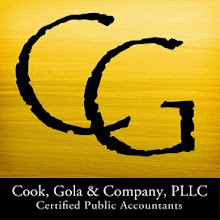A commonly used tax planning device is the ability to take accelerated depreciation on business assets. Normally, an asset is purchased and the business deducts (depreciates) its cost over a time period of several years. This time period is mandated by IRS based on the type of asset that is purchased. The IRS has enacted several provisions that allow businesses to accelerate the depreciation that they deduct on an asset and take most (or all) of it in the year of purchase. This is an important decision because taking accelerated depreciation can greatly reduce the amount of tax that the business owes - and paying less tax is generally thought of as a good thing. There are, however, several reasons why accelerated depreciation might not be right for every business.
For example, when a businessperson takes accelerated depreciation on an asset, she might not be matching her cash flow to her deductions. If she finances a piece of equipment for five years, but takes the entire depreciation allowance in year one, it will mean that she is spending money for four years without being able to deduct any of that expenditure. This could leave her with profit on the books (and thus a tax liability) but no cash in the bank to pay the taxes. From a management standpoint, it might be a better idea to match her depreciation deduction with the length of the note to avoid this situation.
Another time that taking accelerated depreciation might be a bad idea is when a business is growing. In this case, it’s likely that income will be larger in future years than it is right now – and that could mean paying taxes in a higher bracket. In cases like this, we often advise our clients to save the depreciation deduction for future years when they can receive a greater benefit for their deduction. A deduction of $10,000 when you are in the 20-percent tax bracket would save a taxpayer $2,000, but timing that same deduction two years later when they are in the 28-percent bracket could save them $2,800.
Finally, taking accelerated depreciation might not make sense if the businessman is likely to sell the asset in the near future. Any time an asset is depreciated, it reduces the book value for that asset. If a businessman purchases an asset and immediately takes 100 percent depreciation, he now has zero book value (basis) in that asset – he's used it all up in depreciation. Now, if he sells that asset in two years, he will have to pay tax on whatever the sale price of the asset was in the form of capital gains. This is called “depreciation recapture” and it can be a costly tax trap.
In the end, the decision to take accelerated depreciation on a major asset purchase is one that should be made carefully and with the advice of a qualified financial professional. If you have any questions about whether accelerated depreciation can benefit your business, please call our office.
-- Dan Musick



No comments:
Post a Comment